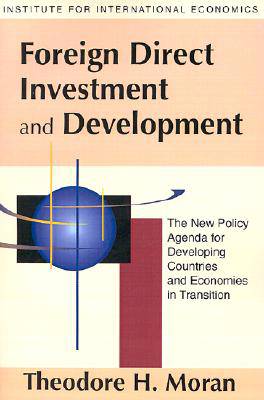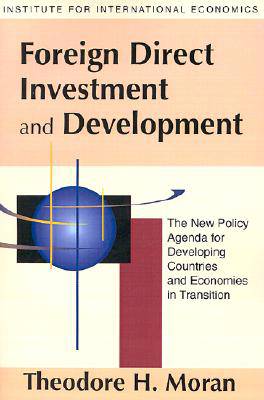
- Retrait gratuit dans votre magasin Club
- 7.000.000 titres dans notre catalogue
- Payer en toute sécurité
- Toujours un magasin près de chez vous
- Retrait gratuit dans votre magasin Club
- 7.000.0000 titres dans notre catalogue
- Payer en toute sécurité
- Toujours un magasin près de chez vous
Foreign Direct Investment and Development
The New Policy Agenda for Developing Countries and Economies in Transition
Theodore MoranDescription
Foreign direct investment (FDI) has grown dramatically and is now the largest and most stable source of private capital for developing countries and economies in transition, accounting for nearly 50 percent of all those flows. Meanwhile, the growing role of FDI in host countries has been accompanied by a change of attitude, from critical wariness toward multinational corporations to sometimes uncritical enthusiasm about their role in the development process. What are the most valuable benefits and opportunities that foreign firms have to offer? What risks and dangers do they pose? Beyond improving the micro and macroeconomic "fundamentals" in their own countries and building an investment-friendly environment, do authorities in host countries need a proactive (rather than passive) policy toward FDI?
In one of the most comprehensive studies on FDI in two decades, Theodore Moran synthesizes evidence drawn from a wealth of case literature to assess policies toward FDI in developing countries and economies in transition. His focus is on investment promotion, domestic content mandates, export-performance requirements, joint-venture requirements, and technology-licensing mandates. The study demonstrates that there is indeed a large, energetic, and vital role for host authorities to play in designing policies toward FDI but that the needed actions differ substantially from conventional wisdom on the topic. Dr. Moran offers a pathbreaking agenda for host governments, aimed at maximizing the benefits they can obtain from FDI while minimizing the dangers, and suggests how they might best pursue this agenda.Spécifications
Parties prenantes
- Auteur(s) :
- Editeur:
Contenu
- Nombre de pages :
- 216
- Langue:
- Anglais
Caractéristiques
- EAN:
- 9780881322583
- Date de parution :
- 01-12-98
- Format:
- Livre broché
- Format numérique:
- Trade paperback (VS)
- Dimensions :
- 154 mm x 229 mm
- Poids :
- 299 g

Les avis
Nous publions uniquement les avis qui respectent les conditions requises. Consultez nos conditions pour les avis.






